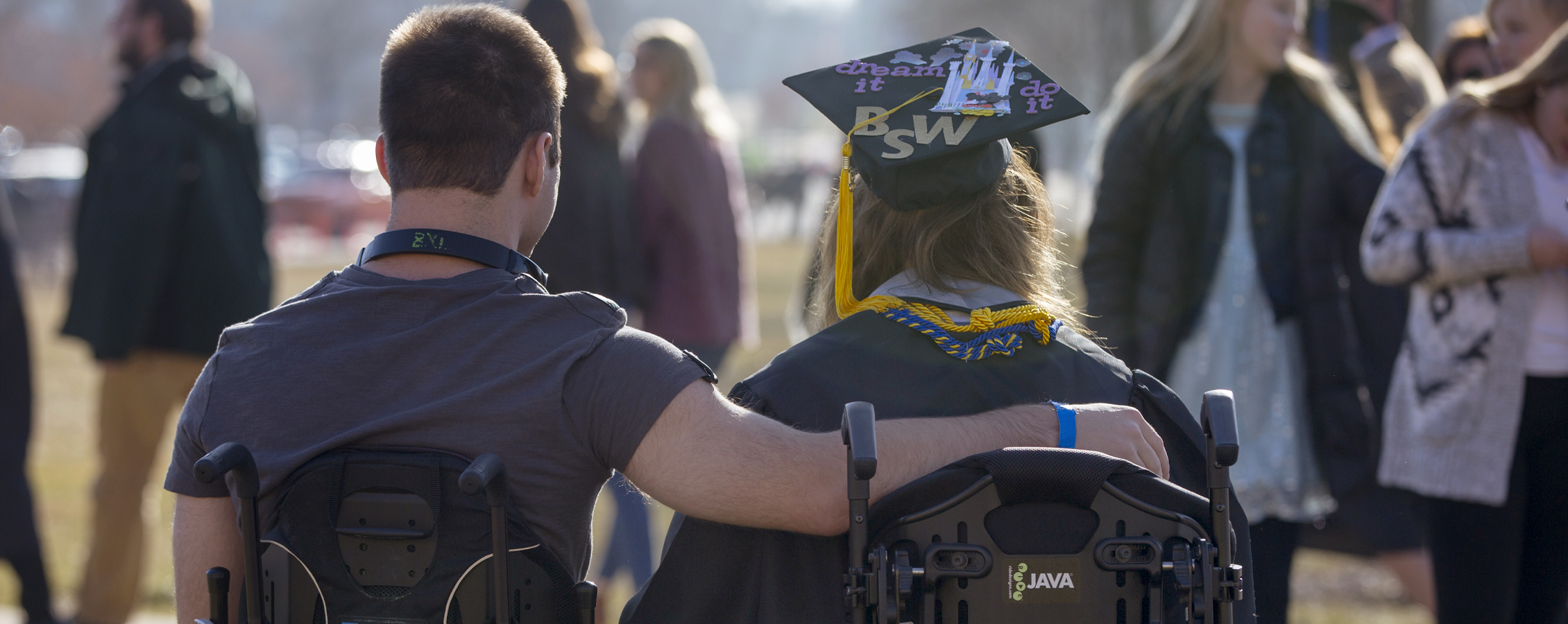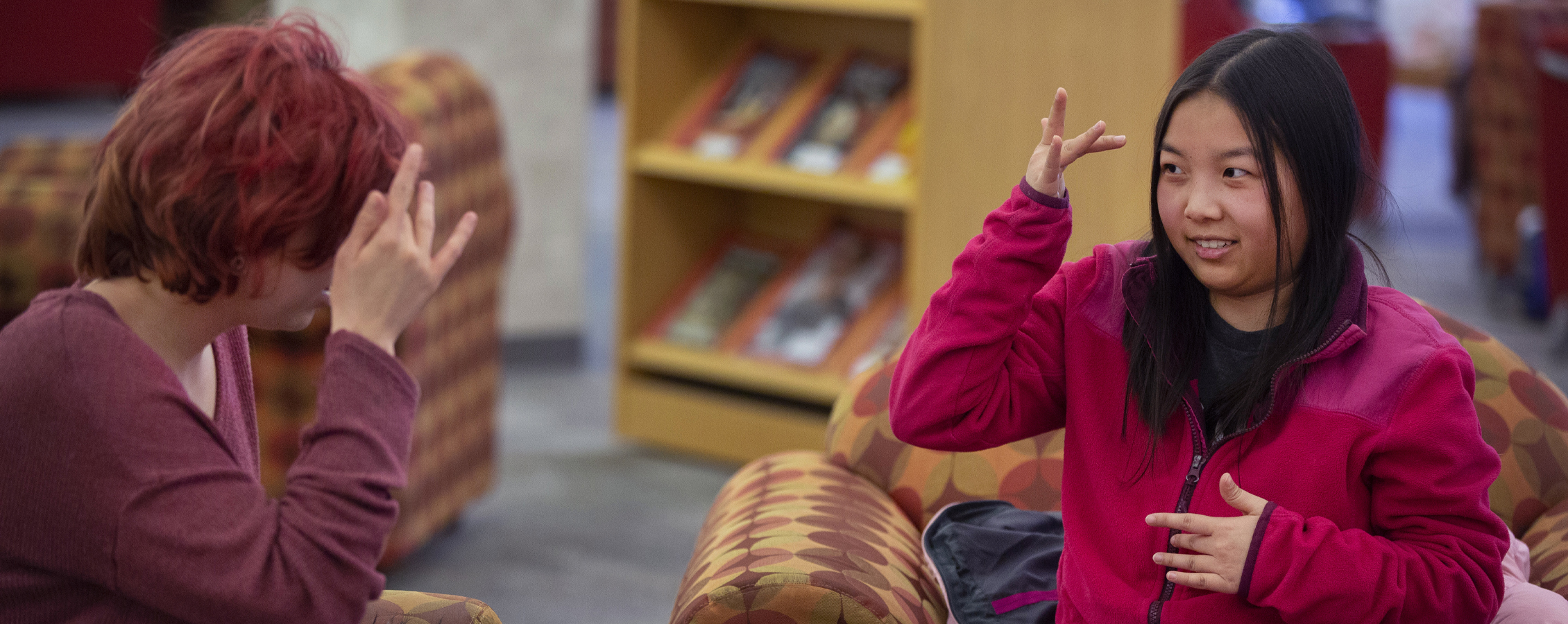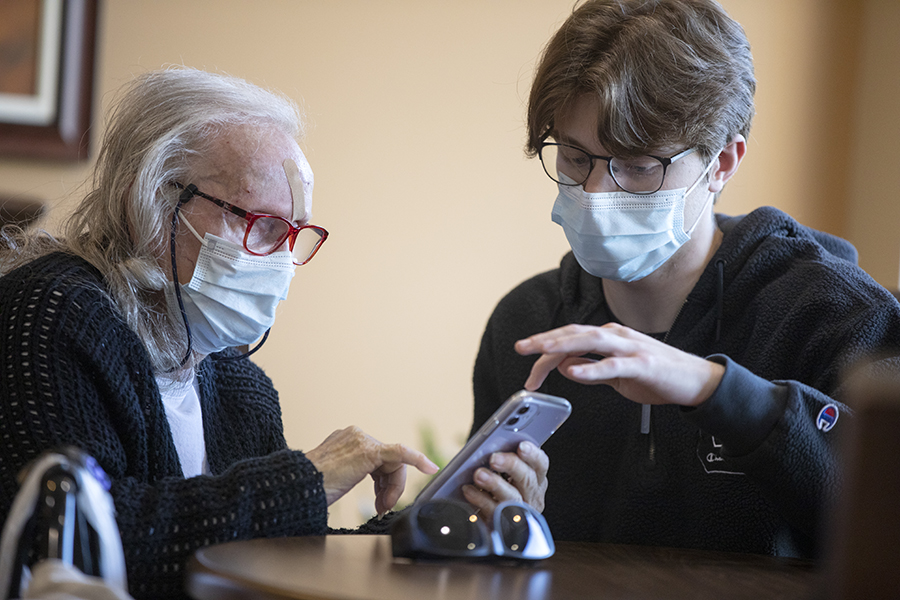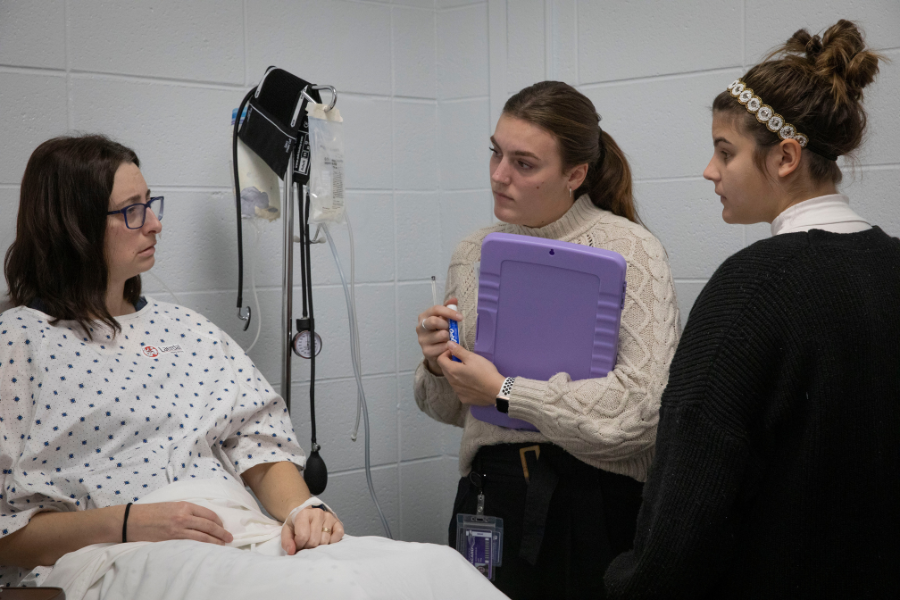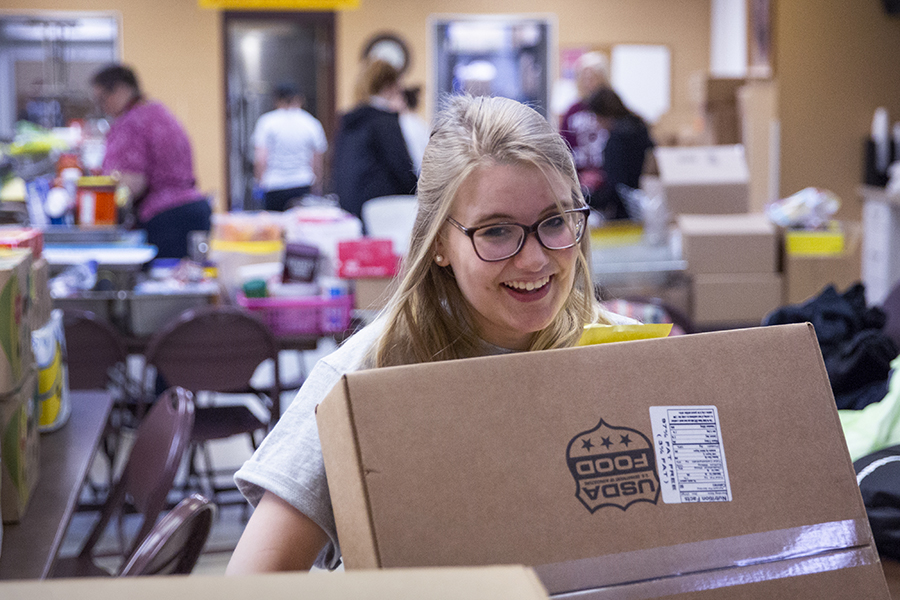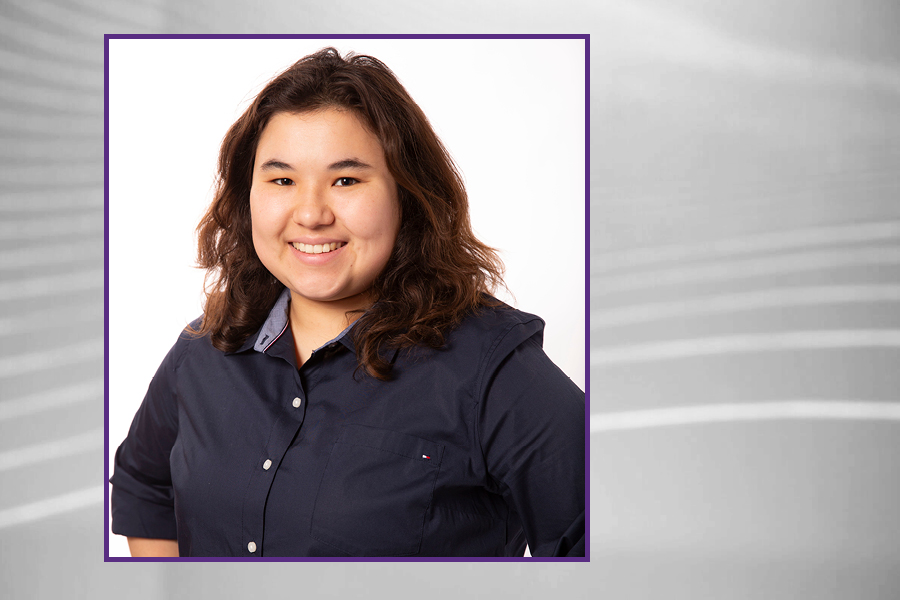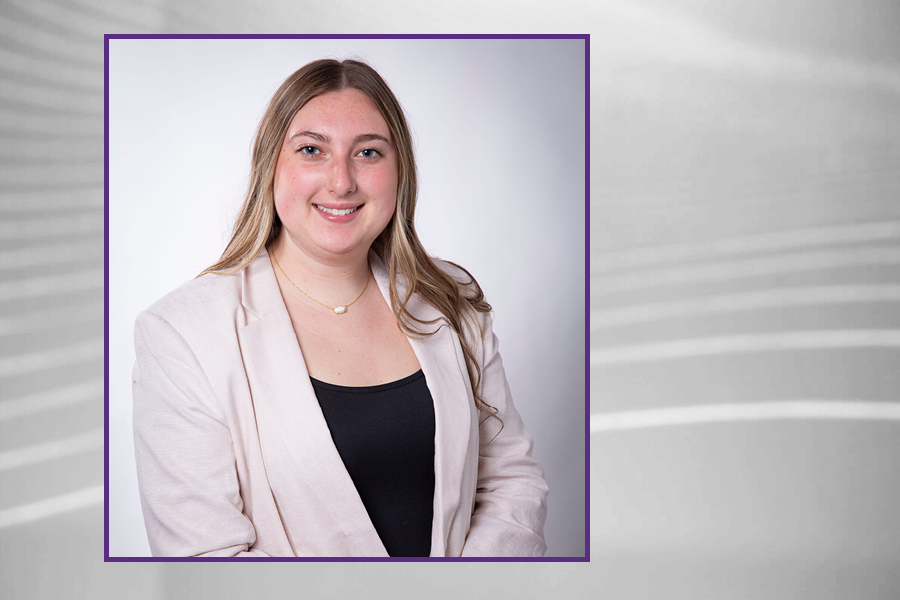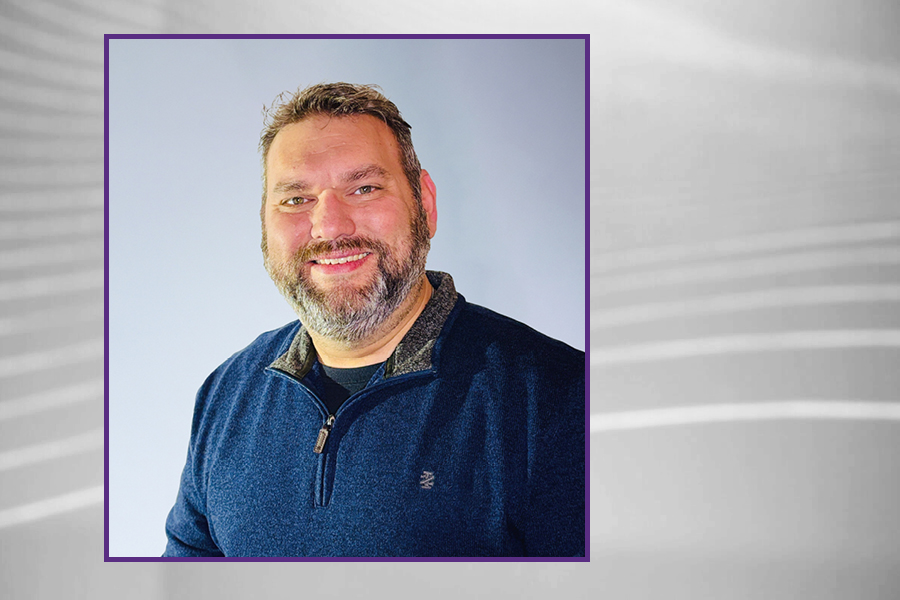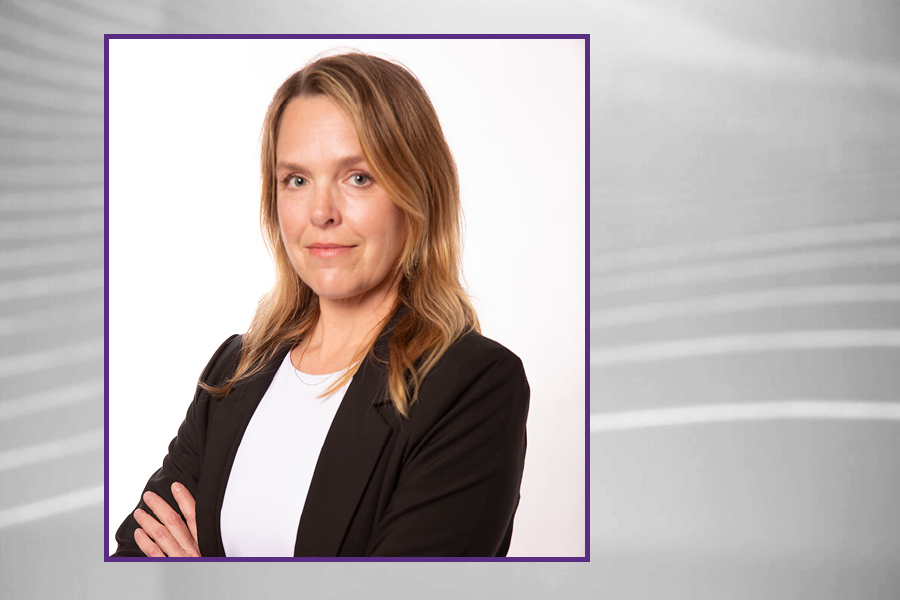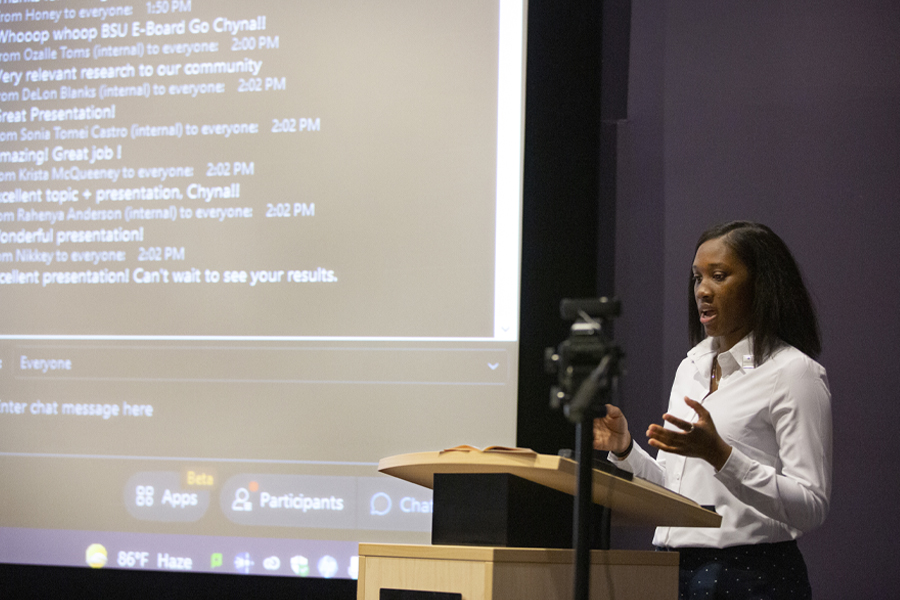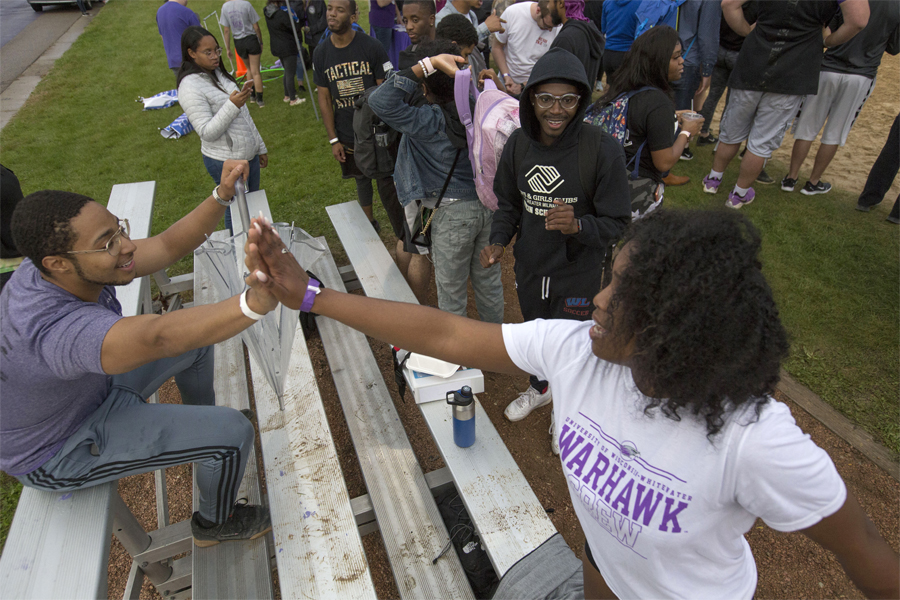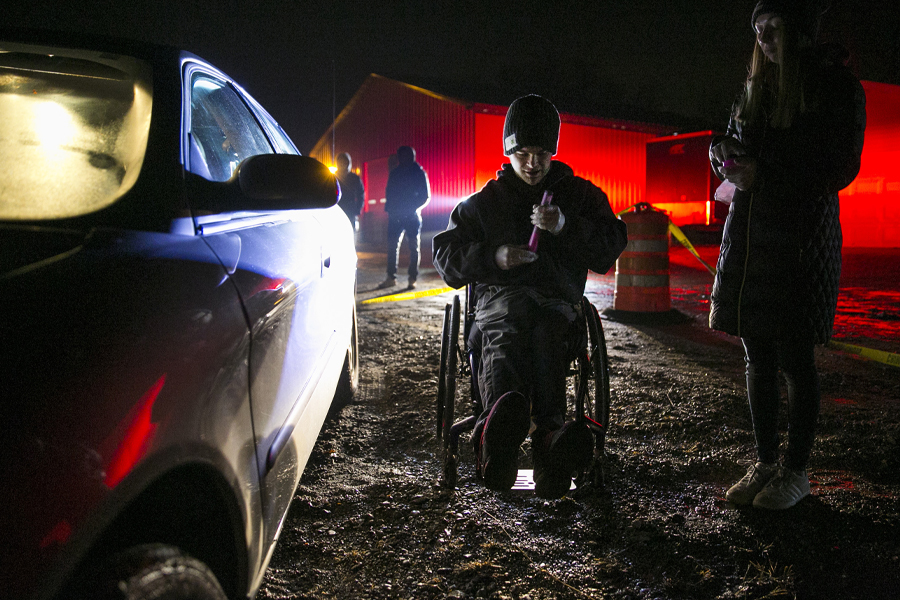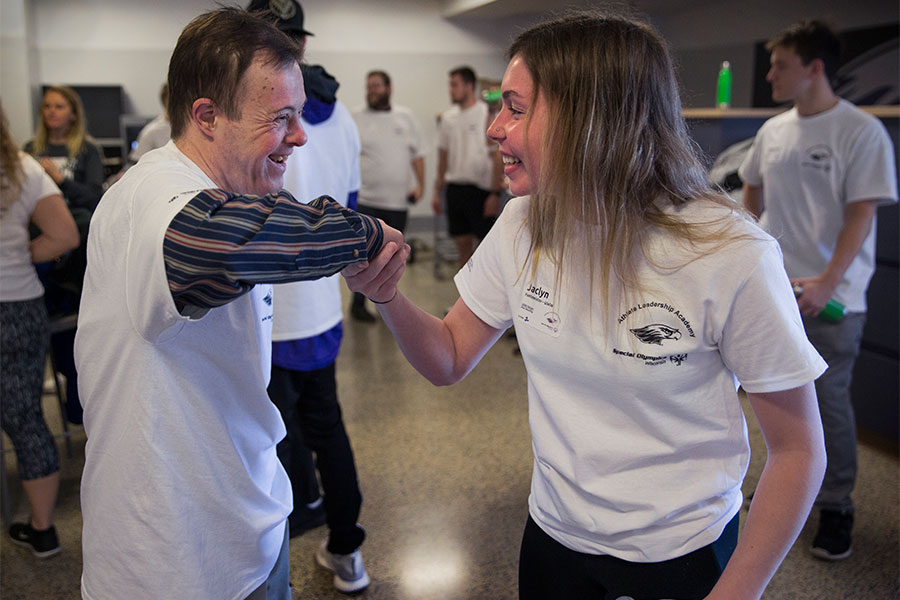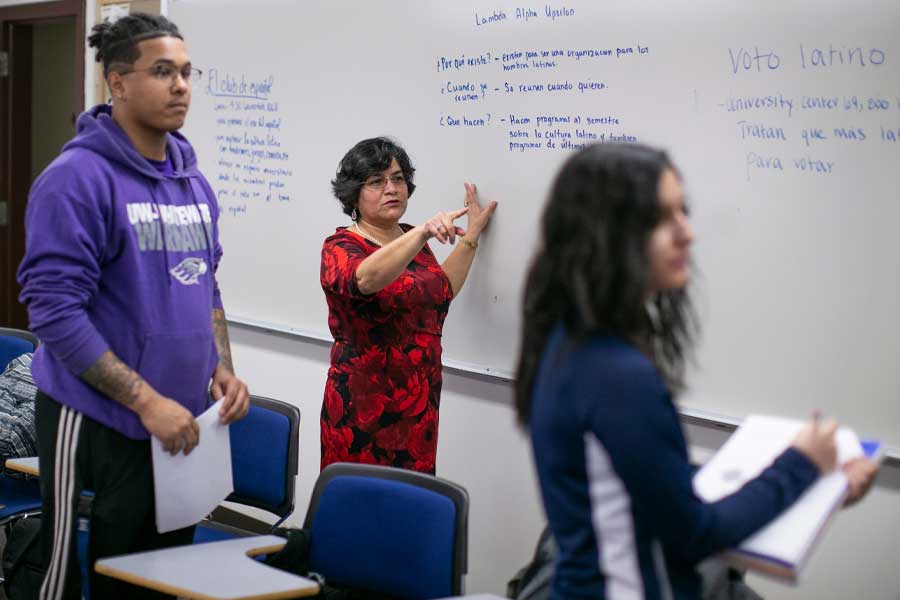SOCIAL WORK
Bachelor's Degree Programs
Social justice for all.
There is perhaps no more selfless act than dedicating your life and work to improving the lives of others. Social work is one of those helping professions, and it’s a career that is increasingly in demand in our nation and around the world.
The University of Wisconsin-Whitewater social work bachelor’s degree program offers an affordable, well-rounded education and the professional, practical training you need to start your career as a general practitioner.
Over the next decade, the U.S. Bureau of Labor Statistics projects employment opportunities to increase by 7% for social workers, with a median annual salary of $61,330 per year.
CAN WE BRAG A LITTLE?
Why major in Social Work at UW-Whitewater?
Here are some reasons we believe you will love studying social work at UW-Whitewater:
- Our welcoming department is home to 180+ students representing a variety of racial and ethnic backgrounds, ages, genders, religions, abilities and sexual orientations.
- We offer a minor in Human and Social Services, which allows our students to take interesting elective courses in a range of fields, from psychology to biology.
- Guided by the National Association of Social Workers code of ethics, our students demonstrate personal and professional integrity.
- Partnerships with social services agencies in Wisconsin and northern Illinois give our students access to quality field experiences.
- Our department offers a number of scholarships and awards for social work majors.
- UW-Whitewater’s Fostering Success and Independence program provides services to students without traditional familial support, including students who’ve been in foster care, experienced homelessness or who have unavailable family structures due to deportation, incarceration and other situations.
What our Social Work students do
Field work and research opportunities
There’s no better way to prepare for your career as a social worker than to put your knowledge and skills into practice with real clients in a real-world setting. You will learn from practicing social workers and other professionals in locations such as a community agency, school, counseling center, nursing home, hospice care facility or probation office. Learn more about our Field Program »

Undergraduate research
As a social work major, you can participate in faculty-mentored research in a variety of ways, including UW-Whitewater’s Research Apprentice Program, Undergraduate Research Program or the 10-week Summer Undergraduate Research Fellowship Program. These experiences are especially valuable if you’re planning to attend graduate school.
Learn more about social work and research »
Campus and community involvement
In our department and across campus, you’ll find ways to get involved. Here are a few organizations that might appeal to a social work major:
- The Social Work Student Organization (SWSO)
- Phi Alpha (national social work honor society)
- Active Minds (our chapter is among the best in the nation!)
- Circle K International
- Coalition Against Sexual and Interpersonal Violence
- Peace, Education, Activism Through Creative Engagement (PEACE)
Community-based learning course
In the upper-level, project-based course, you and your classmates immerse yourselves in a social service agency. You’ll develop a new program, which could focus on advocacy, policy development or education.
What our graduates do
What can you do with a Social Work degree?
Jobs for a social worker are more varied than you might think; you can work in a variety of settings and specialties such as:
- Adoption
- Aging and gerontology services
- Child welfare
- Corrections
- Domestic violence
- Drug and alcohol counseling
- Foster care
- Mental health
- Probation and parole
- Public assistance
- Social services
Our graduates entered the helping profession at places like:
- AIDS Resources Center of Wisconsin
- Beloit Health System
- Children’s Hospital of Wisconsin
- Community Action, Inc. of Rock and Walworth Counties
- Jefferson County Human Services
- LGBT Center of Southeast Wisconsin
- Mayo Clinic
- Revive Youth & Family Services
- Rogers Behavioral Health
- Rock County Child Protective Services
- Talkspace Online Therapy
- Verona Senior Center
- Walworth County Child Protective Services
- Walter Reed National Military Medical Center
Social work graduates also pursue professional development opportunities, such as earning certificates in various specialty areas such as substance abuse, emotional intelligence, trauma and stress reduction.
Graduate and professional school
A master’s degree in Social Work (MSW) can lead to advanced credentials (such as LCSW) and expanded career opportunities. Many of our social work majors continue on to UW-Whitewater’s MSW program. Other students pursue graduate or Ph.D. programs in social work or related disciplines at schools such as:
- George Williams College of Aurora University (clinical social work, medical social work)
- Loyola University of Chicago
- Northern Illinois University
- The University of Connecticut
- University of Illinois at Chicago
- University of Illinois at Urbana-Champaign (Ph.D)
- University of Maryland College Park
- University of Washington School of Social Work
- UW-Madison (Ph.D. in social welfare)
- UW-Milwaukee (social welfare, trauma counseling)
- Washington University in St. Louis
Our faculty
Our faculty members don’t just teach social work. They live it.
The UW-Whitewater Social Work faculty includes licensed clinical social workers with decades of real-world experience to share with students. As clinicians, they’ve worked with clients of all ages in a variety of settings, such as addiction, eating disorders, relationships (couples/family), suicide prevention, hospice care and trauma.
Our faculty members have served abroad in the Peace Corp., fostered children, acted as advocates in their communities, sat on nonprofit boards, garnered national awards, and taught and researched abroad as Fulbright Scholars.
Many of our faculty members are also active in their fields, publishing articles, contributing to textbooks, serving on editorial boards and committees of industry publications/organizations, leading nonprofit organizations and some are still active in their practice.
Our faculty members have a range of teaching and research interests including:
- Aging
- Child support policy
- Disability advocacy
- Food security
- Hope
- Military social work
- Nonprofit management
- Poverty
- Social justice for refugees
- Stress
- LGBTQ youth homelessness
Want to learn more about earning a Social Work degree?
262-472-1137 | morriss@uww.edu
UW-Whitewater offers the following undergraduate social work degree options:
- Bachelor of Arts — Social Work | 4-year-plan [PDF]
- Bachelor of Science — Social Work | 4-year-plan [PDF]
Minors:
Certificates:
In addition to UW-Whitewater’s general education requirements, as a social work major, you’ll take a set of foundational courses, such as:
- Intro to the Social Work Profession
- Intro to Social Welfare
- Human Behavior and the Social Environment
You will need to be formally accepted into the Social Work Professional Training program to continue on to advanced and practice-based classes such as:
- Practice I: Social Work with Individuals
- Practice II: Social Work with Families and Groups
- Practice III: Social Work with Organizations and Communities
- Social Welfare Policy
You’ll also have a vast selection of electives and advanced courses available to you, based on your personal and professional interests, such as:
- Grief Management in the Helping Professions
- Immigration Today: Individual, Community and Global Perspectives
- Social Gerontology
- Assertiveness Training in the Helping Professions
- Managing Stress and Burnout in the Helping Professions
Social worker education requirements: How to become a Certified Social Worker (CSW)
A degree in social work opens you up to many career opportunities. Certain positions might require licensure. To become a certified social worker in Wisconsin, you need a bachelor’s degree in social work from an accredited program (like ours), a passing score on a national exam, and a passing score on the open-book Wisconsin Statutes and Rules examination.
Learn more about licensing and credentialing here »
To apply, you’ll complete the UW-Whitewater standard application for admission and indicate your interest in majoring in social work.

